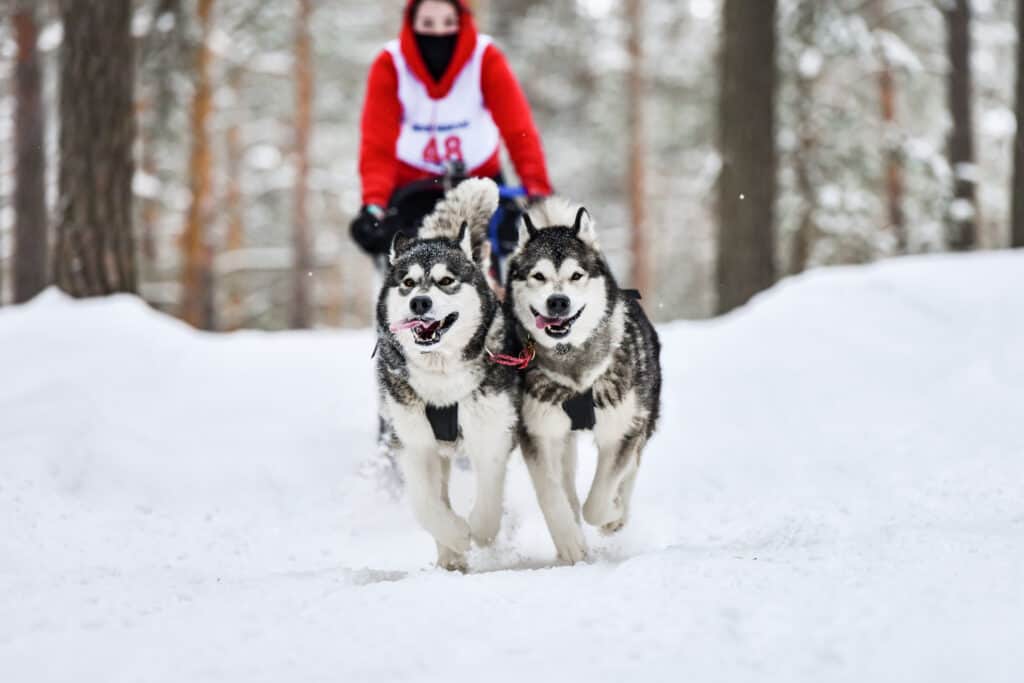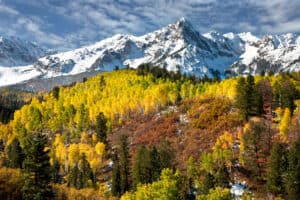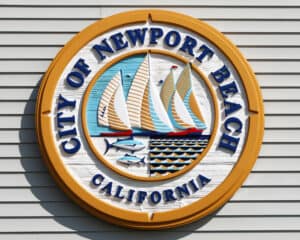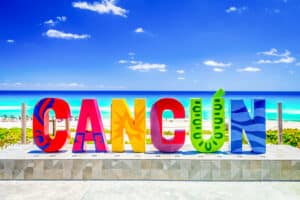
The stunningly beautiful state of Alaska is not for the faint of heart.
The terrain attracts a hardy, adventure-seeking crowd, who will tell you the state’s unique beauty and abundant wildlife make the cold temperatures worth it.
The estimated population of Alaska is 738,000.
Some of this number leave and move elsewhere, but many return to Alaska.
They love the friendly people, wide-open spaces, mountains, sky, and sea, which they find captivating.
Usually, once people settle here, they want to remain.
Here are some reasons why Alaska is so attractive to so many.
25 Pros of Living in Alaska
There are many reasons why Alaska living is amazing. The seafood, the hiking, clean, crisp air, the Northern Lights, no pollution! And many more reasons why the residents of Alaska find it irresistible.
1. Alaska Will Pay You to Move There

Through its established Permanent Fund Dividend Program, Alaska will pay you to move there.
Each year, residents living in Alaska full-time receive royalties from the fund’s earnings.
While this can vary in size from year to year, it ranges from $800 to $1,100.
The fund was established in 1976 to conserve a portion of the state’s revenue from mineral resources, to help future generations of Alaskans, and attract new residents to the state.
2. Alaska Real Estate Is Affordable

Although the overall cost of living in Alaska is relatively high because groceries and resources need to be shipped in and imported from great distances, real estate prices are rather affordable.
Whether you prefer the hustle and bustle of a large town or the seclusion of a remote area of the state, there are plenty of options throughout Alaska.
The median home prices for homes in Anchorage are $299,000, Fairbanks $222,000, Wasilla $239,000, and $185,000 for Kenai.
3. Alaska Is Breathtakingly Beautiful

Not many states are as beautiful as Alaska.
In fact, you can compare it with any of the most beautiful spots in the world because of its uniqueness and beauty.
From the natural beauty of the Aleutian Islands, which has dozens of volcanoes, to the snow-covered peaks of the Denali National Park, Alaska is both overwhelming and blissful at the same time.
The fortunate residents can regularly see and experience the world’s most beautiful landscapes, wildlife, and natural phenomena.
4. Hunting and Fishing — Best in The World

If hunting and fishing are among your favorite pastimes, Alaska is for you.
Hunting options include grouse, hare, mountain goat or brown bear, hunting in the rainforest region.
Moose and caribou are abundant throughout Alaska.
Fishing is also an option in the state’s rivers and streams.
You can fish for trout, salmon, halibut, and crab.
5. Alaska Living Is A Big Adventure

It may be frigid, but it is not dull.
With its spectacular beauty, many recreational opportunities, and plentiful wildlife, there is an adventure at every turn in America’s last frontier.
You can whale watch in Juneau, watch or participate in dog sledding with huskies, explore ice caves, view the beauty of the Northern Lights.
Hike through Denali National Park or cruise the Seward Highway.
Many of Alaska’s rivers are perfect for whitewater rafting, cruise the coastal waters by boat or take a flightseeing tour of glaciers.
Outdoor activities are literally endless for the adventure-seeking individual.
6. No Sales Tax or Income Tax

The state of Alaska has the lowest taxes in the United States.
No doubt, this would attract many! Residents are not required to pay either income tax or sales tax.
They are required to pay property taxes, but the fact that they can save on state income tax and sales tax is a considerable saving for the residents.
When you consider that they receive a yearly sum from the Permanent Fund, living in Alaska is a great way to save money.
7. The Northern Lights

Venture to Alaska if you want to see the Aurora Borealis.
The inland Alaskan Arctic, where the skies are clearer, is one of the best places in the world to view the Northern Lights.
Visitors and residents can view them between September and late April.
To maximize your chances of seeing them, Prudhoe Bay and Barrow in the extreme north or the remote northern villages of Coldfoot in the Yukon Territory offer the best possibility of viewing the Lights.
8. Summer Sunshine 24/7

Residents in Alaska enjoy the ultimate summer.
Besides its ideal temperatures of 60 to 80 degrees, the state also offers very long, sunshine-filled days.
The Alaskan sky is light nearly all night long from late May to late July, with it being light past 10 pm for another month on either side of that. June 21 has almost 19 hours of daylight in Anchorage, making it the longest day of the year.
9. Alaska State Fair

As a resident of Alaska, you get to experience the renowned Alaska State Fair, which is one of the best in the country.
It is held in Palmer, Alaska, in the late summer and dates back to 1936. It is considered the “last hurrah” for the residents before the end of summer.
The fair includes nightly concerts, games and carnival rides, and much food unique to the state.
The fair is nearly two weeks long and is Alaska’s largest annual event.
10. Alaska Has A Unique and Rich History

From its early beginnings as a bridge of land extending from Siberia to its declaration as a U.S. state in 1959, Alaska has an exciting and dynamic history.
Milestones such as the Klondike Gold Rush, the Good Friday Earthquake, and the passing of the Alaska National Interest Lands Conservation Act reserved millions of acres for preservation throughout the state.
The state’s rich history is evident when you look through its national parks, museums, artifacts, and its famed oil industry.
11. Alaska Is Humble and More Down-To-Earth

The entire state of Alaska has a laid-back feel.
If you are down-to-earth, then you will love the easy-going flow of Alaska.
If you love the chaos and bustling pace of New York, you will go stir crazy in Anchorage or Juneau.
12. Status-Quo and Materialism Are Not Considered Important

To be materialistic is to have values that place a high priority on having many possessions and making large sums of money.
Popularity and image, which are always expressed through money and possessions, lead people to have materialistic values and be concerned about the status quo.
You will not find this type of behavior among the residents of Alaska. Every day is “casual Friday” in this state.
13. Alaska Is A Happy Place to Live

For those who already live in Alaska, it is not surprising that their state was ranked #1 as the happiest place to live in America by a well-being study conducted by Gallup-Healthways in 2015.
This study also included collective feelings of financial security, community pride, and good health.
With a strong feeling of purpose in our nation and a sense of contentment, Alaska residents are generally at peace and very happy with the place they call home.
14. You Can Live Off the Land and Still Eat Like Kings

With the best natural resources and wild game worldwide, you can live off the land with subsistence hunting, which is taking game animals by a resident of a state for maintaining or supporting oneself at the minimum level needed for subsistence.
Subsistence hunting occurs throughout Alaska all year long and is a central focus of the traditions and customs of many of the cultural groups in Alaska.
For most rural residents in Alaska, subsistence hunting is critical to their food security, nutrition, and economic stability.
15. More Land, Less Life Than Anywhere in The Country

Because Alaska is the least densely populated of the United States, you can unwind and relax in complete silence if you choose.
Half of the current population of the state lives in the Anchorage metropolitan area.
The low population density is immense, located so far north, and not connected to the mainland.
A significant portion of the state is covered in snow and ice, creating difficult living conditions.
As a result, no urban developments have emerged in those areas.
16. The Best Daily Commute in The World

The daily commute in Alaskan cities is one of breathtaking views of lush rainforests, beautiful beaches, and gleaming glaciers, which would make driving to work a pleasure for most residents.
17. No Real Traffic Problems

The Alaskan highways’ overall road quality and their feeder routes are good, except for some summer road construction.
Highways are paved in most areas, and the amount of traffic poses no problems for commuters.
18. Environmentally Friendly

Except for areas where there is a concentration of wood-burning for home heating, the air quality is the freshest in the world.
Springwater, without a doubt, is considered the best water to drink.
It provides vital nutrients for the body, and it is delicious!
Alaska is full of good drinking water.
Because of the risk of contamination and sickness, prepare to filter or treat the water if necessary.
19. Enjoy the Natural Hot Springs

Ignore the cold while having a good soak in many of the natural hot springs in Alaska.
They are more plentiful than you may expect.
There are many options to choose from when looking for a relaxing natural hot spring to unwind in.
The biggest problem, however, is accessibility.
While Alaska has many incredible natural wonders, they are not always easy to get to.
There are many off-the-beaten-path natural hot springs and some easily accessible that residents and visitors can enjoy — even in the winter.
20. Unique Modes of Transportation Are Acceptable

Driving from one point to another is not something most people stress about these days.
Roads and transportation systems have become very reliable; however, in Alaska it hasn’t always been and still isn’t as easy as in other places.
But it can be more fun.
Dog sleds have been a means of transportation for centuries, especially in the Arctic and sub-Arctic areas.
It is thought that the Inuit invented dog sleds to transport supplies and food to their people.
Dog sleds remained an essential mode of transportation even after the Gold Rush era.
The rise of other modes of transportation, such as planes, trains, and snowmachines, has reduced the need for dog sleds as a mode of transportation.
But mushing is still an essential part of life for some Alaskans.
Many people gather to watch the Iditarod Trail Sled Dog Race or take dog sled tours while visiting — a great way to experience a little history.
21. State Sport — Dog Mushing

Mushing is a sport or mode of transportation powered by dogs.
Dogsled racing is the primary form of mushing and thrives as an unorganized sport that provides a healthy outdoor form of winter exercise for all families.
For generations, dogsled racing has been one of the most prominent sports in Alaska.
Iditarod mushers will take you on a dog sled ride, share stories about the race, and let you pet and cuddle with the sled dogs.
22. Traditions Are Valued

Engaging in cultural values and respecting Alaska Native heritage is fundamental to understanding Alaska’s diversity.
Some of these longstanding traditions may seem odd to outsiders, but they are captivating and essential to the residents living throughout the rural villages and more populated areas in Alaska.
Here are a few of these traditions valued by the residents of the state.
- Dog mushing
- Panning for gold
- Native arts and crafts
- Subsistence hunting and fishing
- Bone carving
- Handmade dance masks
- Trapping and fur trading
- Totem poles
- Basket weaving
23. Alaska Is A Cultural Melting Pot

Mountain View in Anchorage is rated one of the most diverse places to live in the United States.
The military base nearby and international immigration has created a cultural melting pot in the area.
The distinctive demographics in this unique area offer a feeling of pride in the residents.
These people are defined by their language groups and are considered Alaskan Natives.
They are indigenous peoples of the state.
- Iñupiat
- Yupik
- Aleut
- Eyak
- Tlingit
- Haida
- Tsimshian
- Northern Athabaskan cultures
24. Delicious Food

Alaska will never rank high from a culinary perspective, but there are a few quality meals to be found.
The expanse of wilderness and miles of coastline provide the ideal means for fabulous meat and fish meals.
Eskimo ice cream is a native dish made with whipped fat from the hunted animals such as reindeer, bears, seals, combined with snow and wild berries.
Salmon fixed any way is a staple; also, reindeer dogs, halibut, crab, sourdough bread, and oysters are among the favorites.
Blueberries, cranberries, blackberries, raspberries, salmonberries can be found on Alaska’s hiking trails.
However, you must be aware of what you are eating, as some might be poisonous.
25. Beautiful Sunrises and Sunsets

Alaska has sunshine for almost 20 hours a day.
At Point Barrow, the sun does not set from May 10 to August 2.
That is how Alaska got the name “Land of the Midnight Sun.”
The sunsets in Alaska are regarded as the most beautiful on earth.
Alaska’s nearness to the Arctic Circle means that day hours vary in intensity and length.
The sun’s view so far north is unbelievable.
The vibrant display of colors — pinks, oranges, reds — along with the shadows of the mountain ranges and forests, seem almost to touch the sun.
Cons of Living in Alaska
No place is perfect — not even Alaska. There are many features we have already discussed that draw people to this beautiful state. But there are also repelling factors that keep some away. If you are considering residency in Alaska, you need to weigh both the pros and cons to determine if Alaska is right for you.
1. Alaska is a Dangerous State

According to the Bureau of Vital Statistics, approximately 400 people a year come to an untimely death in Alaska, making it the second most deadly state in the country behind Mississippi.
While bear attacks always make the headlines, they are few compared to the number of people who die of exposure in the extreme cold.
Most accidental deaths are from residents who die while sleeping due to carbon monoxide poisoning from clogged chimneys or faulty heaters.
2. Cabin Fever

Every winter, thousands of Alaskans suffer from SAD, Seasonal Affective Disorder.
Because of its geographic place on the planet, winter in Alaska is not just cold; it is dark as well.
Daylight is nonexistent in the northernmost regions for months at a time, which creates a physiological shift in disposition and mood.
Sufferers from SAD experience malaise, anxiety, and deep depression.
To cope, some turn to overeating, alcohol, drugs, or extended periods of sleep.
As symptoms become more severe, suicide can result.
Alaska ranks second to Wyoming for the highest rate of suicide in the country.
3. Frequent Earthquakes

Yearly, there are about 5,000 earthquakes in Alaska.
The most vigorous earthquake ever recorded in North America occurred here in 1964.
Prince William Sound experienced a 9.2 quake in March of that year.
The state experiences powerful volcanic eruptions time and time again, including the most powerful of the 20th century at the Novarupta Volcano.
This event caused the Valley of 10,000 Smokes at Katmai Park.
4. Higher Cost of Living

It is important to note that costs are higher in Alaska because of transportation and its isolation.
A gallon of milk can cost double what it would in other states.
But if you shop carefully, use your rewards cards, and with a bit of creative budgeting, this possible disadvantage may not apply to you, even if your household lives paycheck to paycheck.
5. Isolation

You can take many flights from the continental 48 states to Alaska, but the distance you need to travel becomes surprisingly great after you make the move.
This becomes obvious if you have a family emergency happening outside the state.
Driving from Alaska to Seattle in 72 hours is possible if you don’t make too many stops along the 1,000-mile trip.
You will also need to consider the cost of the trip before deciding to travel.
Hotel costs, gas, food, etc., need to figure into your decision.
6. Constant Snow Removal

In Alaska, there are two seasons, road construction and winter.
Compared to other locations in the country, even the southern locations of Alaska have more snowfall.
On average, Anchorage has over 30 inches of snow, from January to March, with another 30 inches accumulating during November and December combined.
You will need to adjust to doing a lot of shoveling, blowing, and plowing to keep your walkways and driveway clear.
This can be a physically demanding and time-consuming job depending on where you live and how much it snows.
7. Bad Driving Conditions

The bad weather brings bad road conditions, and consequently bad drivers.
There is a reason almost every car in Alaska, old or new, has a dent!
Even the sidewalks can be dangerous after a snowfall.
8. High Housing Costs

Homes in Alaska cost a little more than compared to the rest of the country.
The state median home value is $265,000, with 71% of the homes in the state priced between $108,000 and $435,000.
The median values are higher for some bigger cities, such as Juneau and Anchorage, with prices averaging $364,000 and $303,000, respectively.
Rent is only slightly cheaper than in other areas of the country.
The median rent for a studio and one-bedroom in Alaska is $17 and $21 cheaper than the national average in 2019.
The majority of people in the state are homeowners, however.
9. High Utilities

Based on the 2017 cost of living study by the Anchorage Economic Development Corporation, monthly utility costs in the state are high.
Electricity and gas bills are 33% above the national average in Alaska.
10. High Food Prices

Because food, other than the local food, needs to travel a great distance to get there, the prices are relatively high.
As of April 2019, the amount of money spent on food for one person annually in Anchorage is $450.
With the national average being $323, you can see how food can get expensive in Alaska.
11. Gas Prices

With the cost of a gallon of gas in Alaska at $3.36 according to GasBuddy, it is the sixth-highest in the whole country.
The annual car insurance premium in Alaska is $1,180.
This is a favorable statistic, as the national average is $1,450.
12. Healthcare

General healthcare prices within the Anchorage metro area are an astonishing 82% above the national average, based on the Health Care Cost Institute Report of 2016.
To make things worse, Alaskan private company employees spend more than $99 over the national average for healthcare costs for one person.
13. Extreme Cold

If you decide to move in or around Anchorage, the weather may feel somewhat temperate, but you will experience a shorter summer.
The cold really becomes a problem if you move farther north.
The temperatures dropped to a record of minus 80˚F in 1971 at Prospect Creek Camp.
According to the Alaska Bureau of Vital Statistics, on average, 140 people die from freezing to death each year.
There are various communities in the northern half of the state that experience sub-zero temperatures all year long.
Fairbanks has an average temperature in the city during January of 0˚.
It can get slightly warmer in February, but it will still average around 13˚.
14. Cruise Ships — Spend Cash, Leave Trash

The second largest industry in Alaska is tourism.
Of the two million tourists to visit the state each year, more than half will arrive by ship.
Alaska ranks high as one of the most popular cruising destinations in the world.
Coastal towns collect more than $60 million in revenue through the docking fees and other taxes.
But the environmental cost is high.
Even with strict regulations and watchdog groups, cruise ships still pollute the pristine waters they travel through.
A typical cruise ship produces thousands of gallons of raw sewage, garbage, wastewater, and oily bilge water from their engines.
Airborne pollutants are monitored and regulated, but infractions are common with financial penalties.
Air quality fines are usually more than $20,000, but that is a small fraction of the slot machines’ daily take in the ship’s casino.
Despite the regulations, the violation of wastewater and air quality regulations is usually repeated.
15. Prevalent Violence

Alaska is a beautiful and unspoiled state but a difficult place to live.
The climate is severe, and the strain of life can demand a heavy price.
The stress of living boils over into violence for some Alaskans.
Based on the FBI’s statistics, Alaska is second to Tennessee as the nation’s most violent state.
Despite higher-than-average wages, low poverty level, and a sparse population, violent crimes are surprisingly frequent.
16. Oil spills

The most infamous oil spill in the country occurred in 1989 with the Exxon Valdez tanker’s grounding, where 10.8 million gallons of crude were dumped into the ocean.
But what made it more notable was the pristine setting where it took place.
Soon after the ship’s hull was ruptured, Prince William Sound was filled with oil.
Millions of marine animals, birds, and fish were killed.
Oil spills continue to occur regularly in the spot where the Exxon incident occurred.
As tragic as the spills are, the Alaskans love their oil.
17. Long Nights and Cold Winters

While Alaska has diverse geographical regions with different climates, Alaska is known for its long nights and winters no matter where you go.
Just as Anchorage gets lovely sunshine almost all day during the summer months, it is the opposite during the winter when darkness and cold take over.
Anchorage gets about five hours of sunlight during the winter solstice, with 19 hours of pitch-black sky.
18. Shipping is a Problem

Because not all companies ship products to Alaska, obtaining the items you ordered can be a problem.
So, if you order clothes, electronics, or any other items, it may take forever to get them.
19. No City Life

Alaska receives no attention from authors and artists.
Anchorage never had a venue large enough for famous musicians to perform until recently.
The Alaska Airlines Center was built, and famous acts now have a place to perform.
But getting there is an issue.
Artists cannot drive their tour buses to Alaska without going through Canada, and flying can be too expensive.
So many artists will not come to Alaska to perform.
While there are things to do, city life is slow compared to larger cities in the country.
If bar hopping is to your liking, you will need to walk around a bit as Anchorage is very spread out.
20. Moose and Bear Attacks

Moose attacks are a prevalent thing in Alaska.
Police cars are equipped with massive bumpers to fend off rude and unwelcome moose around highways or public areas.
Bears are everywhere in Alaska, and they are not afraid to attack.
If you are out hiking, you need to be aware of your surroundings.
21. Mosquitoes

Alaska has 35 species of mosquito, and all but a few will bite humans.
They are really an issue only from the second week in June to the last week in July.
Here are some tips to help repel the mosquito.
- Do not use scented lotions, soaps, or shampoos
- Use a headnet for multi-day backpacking or float trips
- Use a repellent
- Don’t wear dark colors, as mosquitoes are attracted to them; wear khaki or neutral shades
- Tight woven cotton shirts and pants are better than porous synthetics
22. Bad Cell Service

Cell phone service is absolutely awful in Alaska.
As so many people today communicate by cell phone or send text messages, use the Internet, etc., this can be an inconvenience difficult to deal with.
23. If Self-Employed, You Must Become a Business

The state earns its revenues through a tax burden on businesses, as Alaska does not have an income tax.
It ranks fifth for the lowest sales tax in the country but first in overall tax burden for companies.
Self-employed individuals or freelancers must become a business when living in Alaska.
The result is your tax burden is potentially higher than it would be in some states.
24. Tsunami Zone

With Alaska’s 6,640 miles of coastline, tsunamis can happen.
They can be triggered by landslides, volcanic eruptions, or earthquakes.
These events are associated with the Aleutian Trench, a subduction zone, where the Pacific plate is pushed under the American continent’s crust.
25. No Road System Connecting the Whole State

If living in a more remote area of the state and want to see the capital of Alaska, plan to take a boat or plane.
Many areas of the state are only accessible by boat, plane, train, or floatplane and cannot be reached by car.




Very interesting info!Perfect just what I was looking for!
Terrific information. Thank you for taking the time to post this.
You forgot fires.